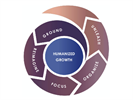Paul Holmes 16 Dec 2019 // 8:04AM GMT

Thought leadership is probably the most effective form of marketing for most professional service firms, so it’s no surprise that the PR industry produces a wealth of surveys and studies.
More from our 2019 Review here.
Excluding our own research, and emphasizing new initiatives or new findings over well-established pieces of intellectual property (particularly those that have made this list in previous years), the 10 most important thought leadership studies of the past 12 months shed new light on critical issues.
1-3: The Evolving Role of the CCO
Perhaps the most striking research this year focused on the changing role of the chief communications officer—and it was mostly good news.
Six years after we asked whether the chief communications officer was an endangered species, at risk of being marginalised by better-equipped and bigger-budgeted marketers, the Page Society partnered with APCO Worldwide on a global survey, which found the CCO’s role expanding in four key areas: increasing responsibility for brand stewardship; maintaining a robust corporate culture; a more central focus on corporate purpose; and a significant investment in technology.
This being the PR industry, CCOs see all this as a mixed blessing. “For the CCO, this provides opportunity to grow and take on other kinds of responsibilities … and in some cases [causes] anxiety,” said Page thought leadership chair John Iwata. “If there isn’t a change in the CCO herself and the function, those responsibilities will be taken by others.” (Our own Arun Sudhaman provided strong analysis—“Anxieties rise as Responsibilities Expand”—here.)
More good news came from a study focused on the world’s most ethical companies, which found that “the demand on marketing and communications appear to be growing when it comes to creating a culture of integrity, communicating corporate values and building brand trust.” David Herrick, managing principal of EthicOne, based that insight on the results of a study conducted in partnership with Ethisphere. Surveying executives from 135 companies on the 2018 list of the World’s Most Ethical Companies, the study found that communications is a critical element when it comes to building an ethical culture and reputation, and that communicating corporate values is increasingly important.
Bringing those of us who see the future of public relations in terms of a mission critical management discipline down to earth with a bang, however, another study provided a reminder that the profession’s real world status is still mixed A report commissioned by Releasd found that 40% of executives don’t think PR delivers good value for their business and two in 10 don’t even know what it stands for (“protecting reputation” doesn’t sound so bad, but “publicity remit”?). It’s not time to abandon all the “shoemaker’s children” jokes yet; obviously, the industry has a lot of work to do on its own PR.
4-7: Taking a Stand
Last year, we highlighted several studies that focused on the increasing intersection of business and politics, most of which suggested that companies needed to be bolder when it comes to taking stands on social issues. This year saw more solid research in this space, although the results were perhaps more nuanced
A survey from global reputation measurement company Echo Research found that two-thirds of under-35s in the US and the UK have now taken part in marches or protests, written to government or companies or signed petitions. The “Populism vs Capitalism” study, which also included interviews with over 50 C-suite business leaders, found that 67% of businesses are concerned about rising populism and activism, and the potential for increased anti-capitalist sentiment among under 35s in particular.
Meanwhile, FleishmanHillard Fishburn’s “Authenticity Gap” study—now in its seventh year—identified the most fruitful areas for companies to focus on. The study found that 66% of consumers want companies to show greater purpose and societal impact and 59% now expect companies to stand up on climate and environmental issues—up from 39% in 2018. Data security and data privacy were also big issues. (For a broader look at the Authenticity Gap research, check out our informative podcast.)
“It’s important to know where your audience stands, and on what issues,” was the reminder from Global Strategy Group, which launched its “Business and Politics” study six years ago and was among the first to identify the power of corporate activism. “The way you articulate an issue is also critical – words matter. For example, ‘preventing climate change’ is far more polarizing than ‘protecting the environment,’” the study said.
And finally, there was a suggestion that we may already have reached the inevitable “over-reach followed by backlash” phase of the corporate activism phenomenon. A special report in the Edelman Trust Barometer series found that more than half of the study’s respondents think brands use societal issues as a marketing ploy. “That’s not good,” said Richard Edelman.
8. Companies Remain Woefully Unprepared
The vast majority of companies in G20 countries are woefully ill-prepared to handle the most common risks to their business, according to the inaugural Resilience Barometer from FTI, the management consulting firm that includes the strategic communications business of the same name. Assessing preparedness to handle 18 situations that could hurt their turnover, value or reputation, the study found that the resilience score for the G20 companies is only 40 points out of a top score of 100. It covered situations relating to regulatory and geopolitical disruption; leadership, culture and communications; change and business model resilience; data privacy hacks and cyber security. According to managing director Andrew Pimlott, “This rate of change may be too fast for companies to deal with. The survey shows that risks are materialising into significant impacts, but companies are mainly taking a reactive approach to both risk management and resiliency.”
9. Not So Fast
Maybe we have internalized the idea that in the modern, real-time media environment, speed is everything. And maybe it’s time to pause and reconsider. New research from new agency Hot Paper Lantern surveyed 80 publicly traded companies that have been through crises, and concluded that a good crisis response reduces the financial hit that companies take—even if it takes them longer to get those messages out. Hot Paper Lantern president Ted Birkhahn concludes: “In a perfect world, a swift and effective response is ideal; however, if a company needs to sacrifice one over the other, the data clearly shows taking more time to respond intentionally and with purpose outperforms a fast response lacking resonance.”
10. Our People At Risk
The UK-based Public Relations and Communications Association (PRCA) partnered with research company Opinium on a report, ‘Opening The Conversation: Mental Wellbeing In Public Relations, which found that 89% of practitioners have struggled with mental wellbeing. Published to coincide with World Mental Health Day on October 10, the report found that about a third of PR professionals say they find their job very stressful, compared to 19% of UK workers overall, and 59% of PR workers (62% in agencies) say this stress is caused by their workload. Reinforcing the alarming spiral, that workload is the main reason why PR professionals don’t take time off for their mental health (43%).


































.jpg)

















